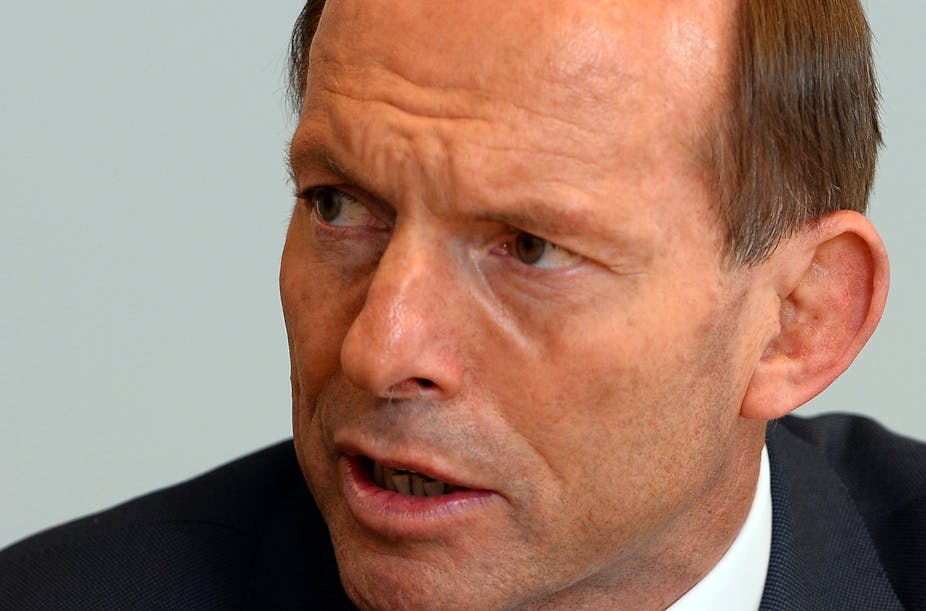In the last week of the campaign, some naggingly familiar comments came out from the Coalition. Then opposition leader Tony Abbott said he wanted to see the national curriculum in history changed because it was too left-leaning and underplayed Australia’s western heritage.
Slightly inconsistently, but to his credit, Abbott added that it would be up to teachers to decide what was in the curriculum.
If, now as prime minister, he sticks to that latter position, there will be sighs of relief amongst educators. If he doesn’t and the Coalition attempts to meddle in the history curriculum, as former prime minister John Howard did, Abbott should look to the past to see he doesn’t repeat it.
From experience both in Australia and elsewhere, we know any attempt at personally-motivated, ideological interference in the history curriculum will be seen for what it is. This interference will turn into an unpleasant, distracting and wasteful fight between history professionals and the revisers.
And, eventually, the meddlers will come to grief either because they outrageously overplay their hand or because their meddling is undone when there is a change of government.
Why is it always history?
Of all subjects in our school curriculum, it is history that causes most angst amongst conservative politicians. In contrast, there rarely, if ever, seems any political interest in intervening in maths or physical education.
But this intervention is often argued for without either evidence or understanding of how curriculum works. Tony Abbott insisted, for example, that there were no Coalition prime ministers mentioned in the curriculum, and that trade unions were included while business was left out. But this is clearly not the case on either count.
The approach by right-wing reformist politicians to history curricula follows a clear pattern. First, they express a need to return to a triumphalist view of the past that uncritically highlights the achievements of a free market economy, Western civilisation and Christianity. Second, we have a highly personalised view about what should be in and what should be out of the ideal history curriculum. Finally, there is a reliance for support on at least one major conservative media outlet or at least one neoconservative think tank to reinforce these ideas.
This has been the pattern in the United States since 1986, in the UK since the early 1990s and in Australia from 2006.
In the US, from 1986 to 1994, the redoubtable Lynne Cheney - at that time fellow of the right wing American Enterprise Institute - was aided by the Wall Street Journal in a fierce but ultimately unsuccessful fight against the voluntary national curriculum standards in history. The conservative arguments were based on the idea that standards were corrupted by Leftist tendencies. In the end, the standards were adopted in revised form by many states.
Since then, the arena for debate has shifted with several conservative US states reacting against a professionally-designed view of the past. The most egregious of these happened in Texas where in its 2010 curriculum, McCarthyism could be studied but only if, for “balance”, students learned about the Venona project too. The Venona project was a World War II US and British intelligence cryptanalysis operation which conspiracy theorists have recently used to justify McCarthyism on the grounds that it supposedly exposed Soviet penetration of US agencies - which it did not.
Students of modern history also had to study closely the triumphs of the Moral Majority - a prominent Christian right organisation - and the National Rifle Association.
A UK example
In the United Kingdom, the most recent conservative intervention in history curriculum has been orchestrated by education minister Michael Gove.
Gove’s first strategic move came in May 2010 when he sacked the independent statutory Qualifications and Curriculum Development Agency (England’s equivalent of the Australian Curriculum and Assessment Authority). He replaced it with an executive organisation, the Standards and Testing Agency, thus placing curriculum and assessment firmly within the remit of the minister.
Gove then took on the revision of the history curriculum in England by appointing a group of anonymous advisers and a small group of historians that included celebrity academics Simon Schama and Niall Ferguson. Over a three-year period, Gove-influenced arguments whizzed into his favourite newspaper, the Daily Mail.
Much controversy and a vociferous rejection by teachers and historians alike of the Gove proposals ensued. In the end, bowing to pressure and looking very foolish indeed, Gove backed off after a mass rejection of his approach by historians in February 2013 and after Schama castigated him in public in the following May.
The current state of play is that the history curriculum has been revamped by pragmatist Special Adviser for History Mike Maddison with the assistance of progressive Cambridge history educator Christine Counsell. To the delight of his Tory rivals, Gove has been left with his pet project in ruins, his leadership ambitions thwarted and the UK’s professionally-designed history curriculum reasonably intact.
The lesson is there for all to see – meddle with history at your political peril. Let’s hope for everyone’s sake that Tony Abbott sticks to his promise to leave it to the teachers.

